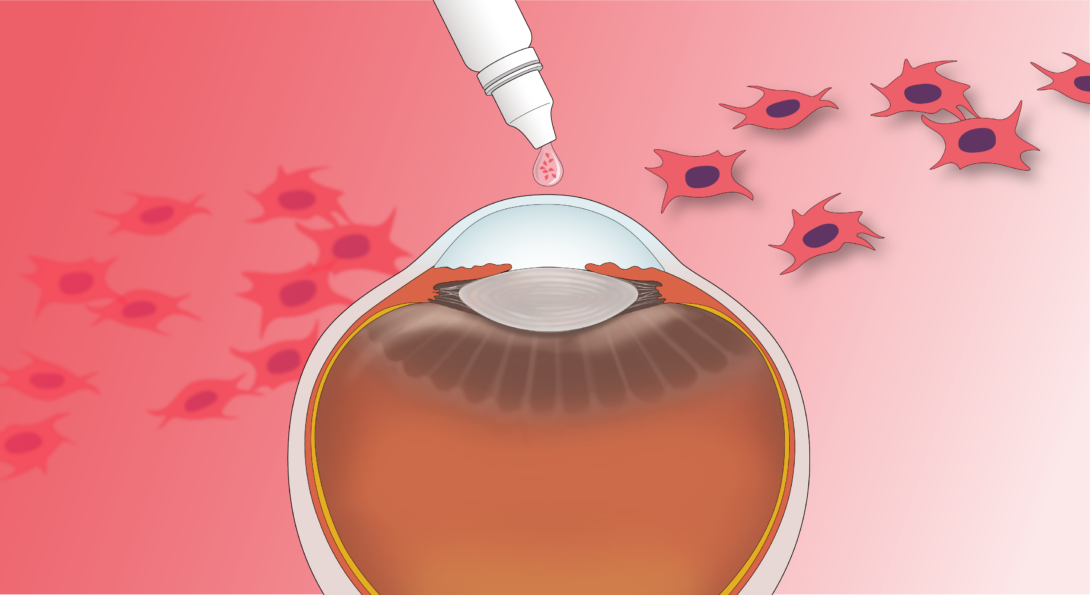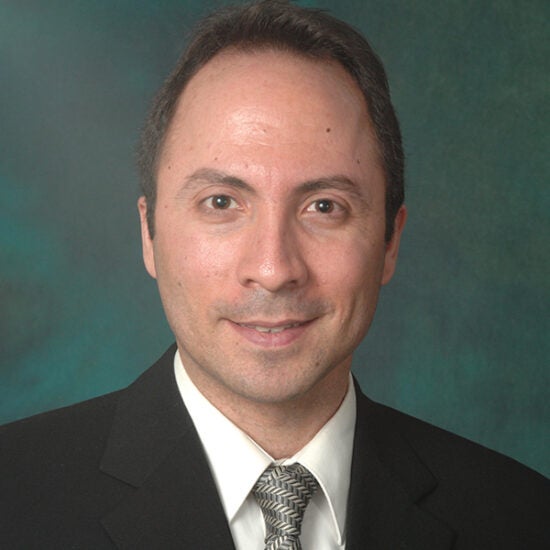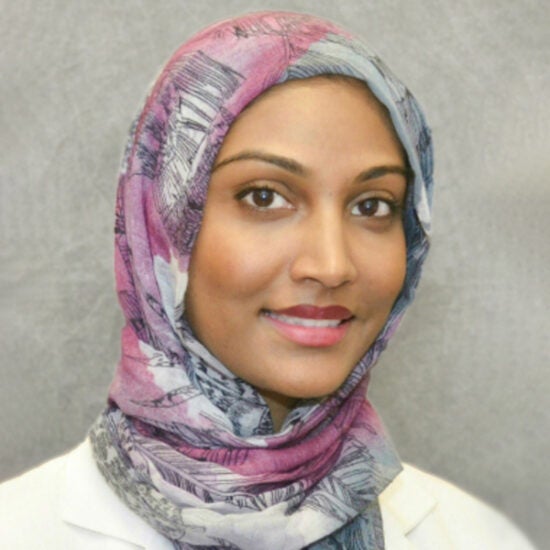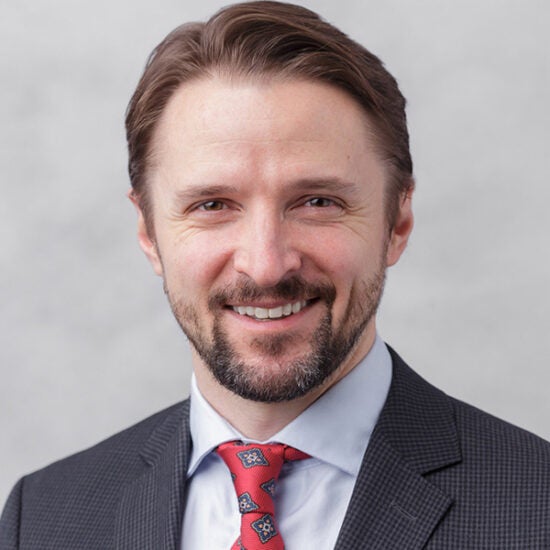Ocular Regenerative Medicine Fellowship

Program Overview Heading link
The Ocular Regenerative Medicine (ORM) Fellowship offers a variety of opportunities in clinical, research, and educational areas.
Program Purpose
The Ocular Regenerative Medicine (ORM) Fellowship provides structured training for clinical application of novel diagnostic and therapeutics for repairing diseased or damaged ocular tissues and restoring the tissue structure and function. The fellowship focuses on the diagnosis and medical management of complex diseases of anterior and posterior ocular segments, particularly in the context of novel clinical studies. By completing this program, fellows will be properly trained in developing and applying advanced diagnostics and regenerative therapies to the eye.
Patient Care
To gain patient care experience in the context of the ongoing novel clinical and translational studies for eye diseases at UIC. The objective is to ensure high standards in terms of safety, effectiveness, timeliness, efficiency, patient-centeredness, equity, and its potential to enhance eye health, all while minimizing per capita expenses.
Medical Knowledge
To develop competence in the examination techniques and diagnostic and management skills necessary to properly identify common and rare diseases that would benefit from regenerative therapies and to apply and develop such therapies.
- To receive diverse training in the ophthalmic application of:
- Cell-based Therapies
- Biological Therapies
- Regenerative Medicine Devices
- Artificial Intelligence–based diagnostics and therapeutics
- Novel Imaging Devices
- To acquire in-depth understanding of diagnostic testing specifically used in this subspecialty, learning to perform and interpret a variety of imaging modalities such as OCT, Scheimpflug imaging, Confocal microscopy, and electroretinography.
- To develop clinical research skills including design of clinical trials involving Ocular Regenerative therapies, regulatory compliance, and execution of clinical trials according to GCP (good clinical practice) standards.
- To obtain clinical competence in applying novel ocular regenerative therapies medically and surgically
Practice-Based Learning and Improvement
Fellows are expected to continuously evaluate and improve their patient care by critically assessing their practices and incorporating scientific evidence. They should possess the skills to appraise research literature in ocular regenerative therapies in the areas listed above (Cell-based Therapies, Biological Therapies, Regenerative Medicine Devices, Artificial Intelligence – based diagnostics and therapeutics, Novel Imaging Devices) and stay updated with advancements, and apply evidence-based practices. A commitment to lifelong learning and self-reflection is essential for refining clinical skills and enhancing patient outcomes. By fostering a culture of continuous improvement, fellows contribute to the advancement of science of Ocular Regenerative Medicine and provide the highest standard of care to their patients
Interpersonal and Communication Skills
ORM fellows must possess excellent interpersonal and communication skills for effective information exchange and collaboration with patients, families, healthcare professionals, regulatory agencies (IRB, FDA) and other stakeholders. They should establish rapport, actively listen, and communicate clearly with patients, ensuring comprehension of their conditions and treatment plans. Fellows should also collaborate seamlessly with interdisciplinary teams, including clinical investigator, basic scientists, research coordinators, regulatory and other technical consultants, etc. By fostering strong communication skills, fellows enhance patient relationships, promote coordinated care, and improve application and implementation of ocular regenerative therapies.
Professionalism
Fellows are required to showcase a strong dedication to professionalism and an unwavering commitment to upholding ethical principles as it relates to the application and study of ocular regenerative therapies to patients.
Systems-Based Practice
ORM fellows should exhibit an understanding of the broader context and system of healthcare, encompassing the structural and social factors that influence health outcomes. They should recognize the impact of social determinants of health and strive to address them in their patient care. Additionally, fellows should be adept at effectively utilizing available resources and collaborating with other ophthalmologists and healthcare professionals to provide comprehensive and optimal healthcare services. By being responsive to the larger healthcare landscape, fellows can contribute to improving overall health outcomes and addressing healthcare disparities.
Clinical
- Seeing patients under the supervision of the attending mentor
- Clinical assessment, management and monitoring of patients enrolled in Ocular Regenerative Medicine Clinical Trials
- Clinical Trial planning and execution
Didactic
- Running quarterly journal clubs on Ocular Regenerative Medicine
- A weekly case presentation session, consisting of at least two cases per session. Fellows will have the opportunity to present interesting and challenging cases encountered during their clinical practice.
- Attendance at Department’s weekly Virtual Grand Rounds
- Presenting at teaching conferences and participating in the teaching of medical students and residents
- Presenting work at national and international meetings and publishing in academic journals
Capstone Project
With guidance from faculty mentors, the fellow is expected to define at least one core project in the first 3-6 months which they will develop throughout the duration of their fellowship. This project will involve the application of a novel diagnostic or therapeutic in the context of regenerative therapy for a complex eye disease. This will enable the fellow to gain experience in all aspects of the clinical study.
Quick Facts Heading link
-
Program Length
12-24 months
-
Location
Illinois Eye and Ear Infirmary at UIC
1855/1905 W Taylor St. and 1009 S Wood St.
Chicago, IL 60612 -
Contact
Ali Djalilian, MD
adjalili@uic.edu
Active Clinical Trials Heading link
- Safety of Topical Mesenchymal Stromal Cell Secretome for Ocular Surface Disease (NCT05204329)
- National Institutes of Health (NIH) | National Eye Institute (NEI)
- Efficacy of Locally Delivered Allogeneic Mesenchymal Stromal Cells (NCT05705024)
- United States Department of Defense
- Safety of Locally Delivered Allogeneic Mesenchymal Stromal Cells (NCT04626583)
- United States Department of Defense
Meet the Program Directors Heading link
Faculty Heading link
R.V. Paul Chan
Maria Soledad Cortina
Deepak P. Edward
Email:
Sandeep Jain
Email:
Mark I Rosenblatt
Darvin Yi
Fellowship Faculty Heading link
- Steve Roth, MD, Michael Reese Endowed Professor, Department of Anesthesiology
- Nadim Mahmud, MD, PhD, Professor, Department of Medicine (Division of Hematology and Oncology)



